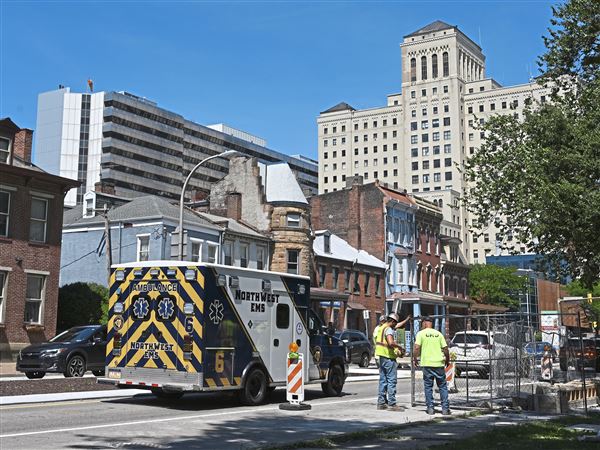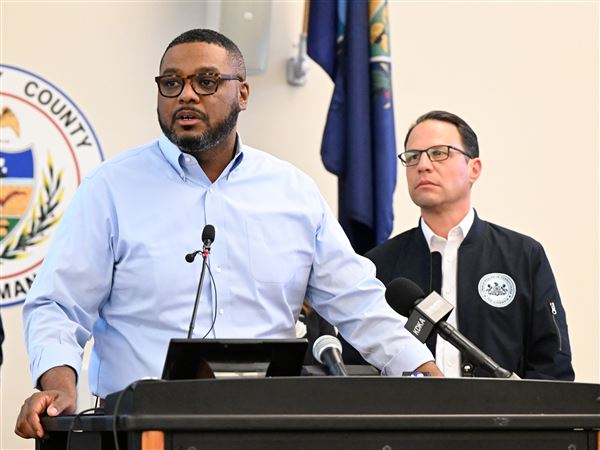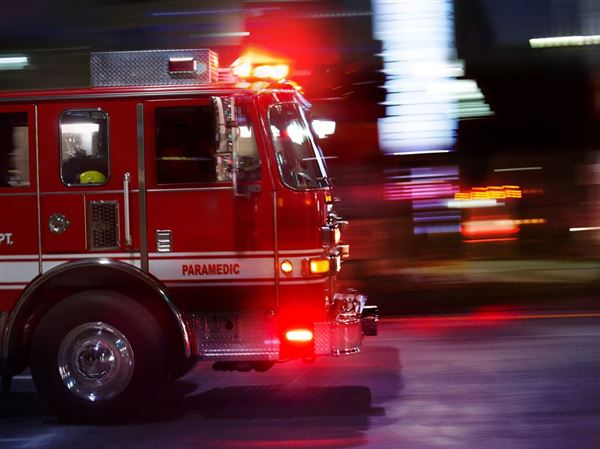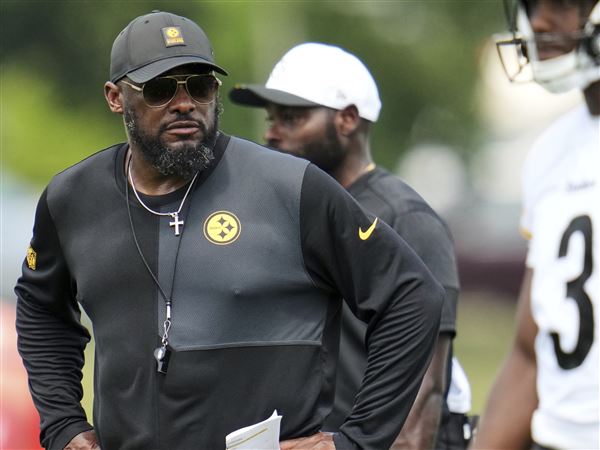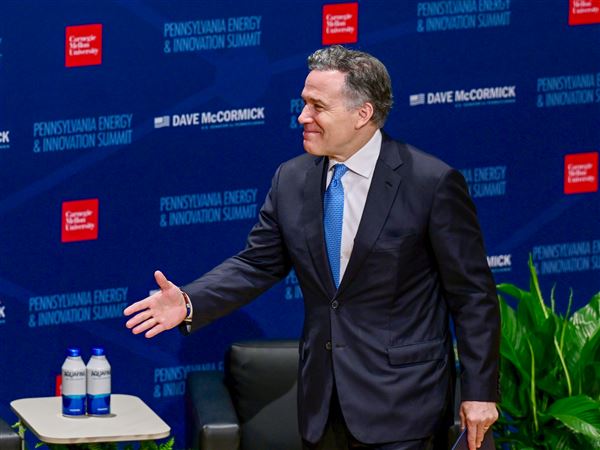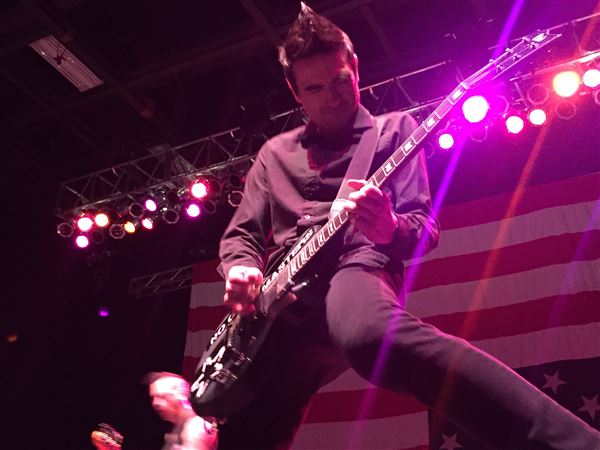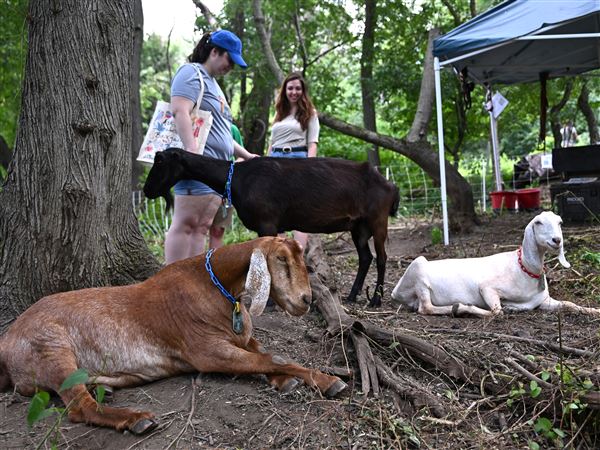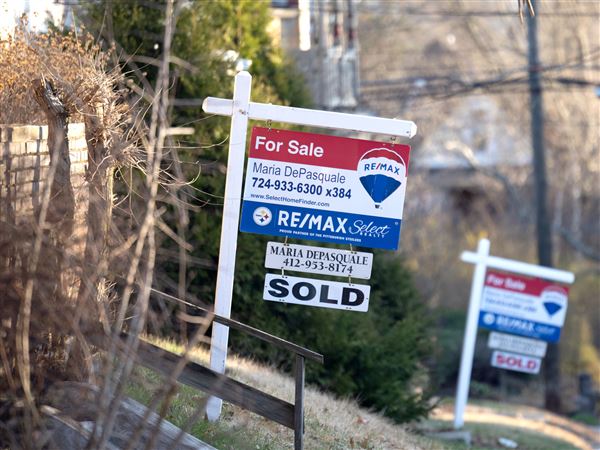HARRISBURG -- The state Legislature will return this week for three of its final nine days of work in 2008, and conflict over a Democratic plan to expand health insurance is endangering an important state health care agency.
The impasse over whether to extend health insurance to 275,000 uninsured adults, which pits House Democrats and Gov. Ed Rendell against state Senate Republican leaders, also is prolonging a delay in getting financial aid to Pennsylvania doctors to help them pay malpractice insurance premiums.
"All three of these issues are important and they all need to be resolved this fall," said Amy Kelchner of the Governor's Office of Health Care Reform.
The stalemate over making health insurance available to more adults is threatening the continued existence of the Pennsylvania Health Care Cost Containment Commission.
The agency, known as PHC4, collects and reports data related to hospitals and health care. It closed for a short time in early July, because the Legislature hadn't reauthorized it as of July 1, when the 2008-09 fiscal year started.
But then Mr. Rendell gave the agency a temporary reprieve, until Nov. 30. It will, however, cease operations again at that point if the Legislature doesn't act this month or next to permanently renew it.
Commission spokesman Joe Martin said two important annual reports are coming out soon, a Guide to Cardiac Surgery and the Hospital Performance Report.
"But those will be the last public health care reports of their kind in Pennsylvania, if there is no action to reauthorize PHC4 in the next few weeks," he said in an e-mail. "It is imperative that the General Assembly and Gov. Rendell act to reauthorize PHC4 before this fall session ends."
He said the agency could cease operations "despite overwhelming support from all four legislative caucuses and from the governor's office."
The second issue is a state program to help doctors pay for the high cost of malpractice insurance premiums, which is funded by a 25-cent-per-pack tax on cigarettes and now has $542 million in it.
But Mr. Rendell has proposed an additional tax of 10 cents per pack, which would raise another $120 million that he'd use to fund an extension of health insurance to some people without it.
Senate Republicans have balked at the additional tax, and say they fear that a major expansion of state health insurance could, in the long run, cost more than the state can afford.
"There are serious concerns that [health care expansion] is not economically sustainable," especially with a recent decline in state tax revenues, said Senate GOP spokesman Erik Arneson. "This is not the time to create a massive new government program."
Senate leaders also said steps should be taken to make health care more affordable. They want to separate the malpractice premium issue from the health insurance issue, and help doctors with their premiums now and then deal with health insurance later.
But Mr. Rendell thinks the two issues should be dealt with together, saying it's important to help people without health insurance now. He said that five years ago, the Legislature approved the 25-cent-per-pack increase in the cigarette tax to help doctors pay their premiums, and he thinks another 10-cent-per-pack increase is justified to help uninsured people.
In order to have enough time to deal with the three health care issues -- plus Mr. Rendell's desire for the Legislature to vote on a plan to lease the Pennsylvania Turnpike and a bill aimed at promoting energy conservation -- the governor thinks legislative leaders should schedule more sessions than just the six days in September and three days in October that are now planned.
That doesn't appear likely.
"The existing fall calendar provides plenty of opportunity to address the issues impacting Pennsylvanians," said Mr. Arneson. As of now, the last three days when the full Legislature will be in session are Oct. 6-8.
"If the House wants to discuss adding session days [before the Nov. 4 election], we are open to the conversation," he said.
Tom Andrews, an aide to House Democratic leader Bill DeWeese of Waynesburg, said the House plans to be in session for seven days in November after the election, and the Senate could return to work then.
Senate leaders recently announced, however, they would skip the three-week lame-duck session that is usually held after the November election in even-numbered years.
The current session ends Nov. 30 and the new two-year session starts in January.
So, as of now, Oct. 8 will be the full Legislature's final work day for the year.
First Published: September 15, 2008, 4:00 a.m.
